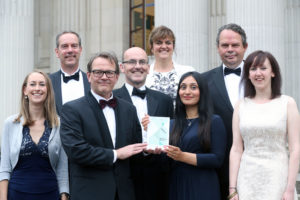Building on the previous success with the AlgiFerm project, AlgiPharma, together with leading experts in fermentation at the Centre for Process Innovation (CPI, Redcar, UK), FMC Biopolymer, and SINTEF have secured additional funding from the UK’s Technology Strategy Board (now Innovate UK) and Innovation Norway for further investigation on microbial production of AlgiPharma’s promising new alginate oligomer drug candidate, OligoG. The study will focus on developing methods for scaling-up microbial fermentation production of OligoG at CPI.
The project, ALGIPRO, is an innovative collaborative effort between Norway and the UK. It will translate over 20 years of academic research into an industrial scale production process for alginates. The Centre for Process Innovation Ltd. (UK) is leading the scale-up based on development by SINTEF (Norway). AlgiPharma AS (Norway) will use the product as the Active Pharmaceutical Ingredient in its development of medicines for cystic fibrosis, COPD and chronic wounds. FMC Biopolymer (UK, Norway) will market the product in existing and new applications within the food and pharmaceutical markets. If successful ALGIPRO will facilitate the introduction of novel medicinal products to the market that will ease patient suffering and potentially reduce healthcare costs. In addition it will be a new tool in fighting multi-drug resistant bacteria. The project is funded through a joint UK-Norwegian initiative between the Technology Strategy Board and Innovation Norway.
For further information, please contact:
Arne Dessen, Executive Chairman; arne.dessen@algipharma.com
Philip D. Rye R&D Director; phil.rye@algipharma.com
November 2014


